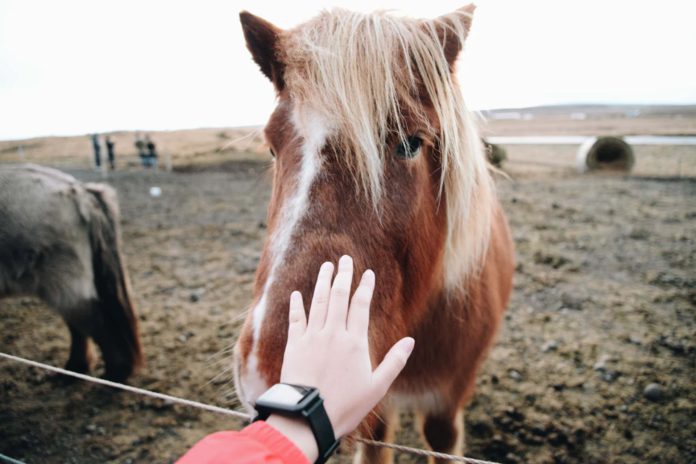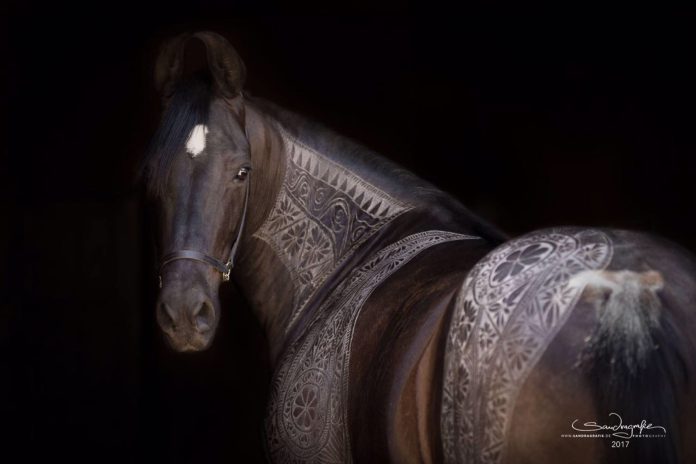Kendra Bruning, founder of GameCows, shares some significant insights: “I once worked with a ‘spirited’ horse whose barn name was Voodoo. My mentor and I spent ages trying to get the colt to respond to training and become more even-tempered. But he constantly seemed to be on edge. He once spooked and sprinted under a half-closed garage door with me still on the back. Another time, he stopped short at a jump. Unfortunately, I did not; I kept moving forward, straight over his head and into the ground. The stunt sent me to the hospital and put me in a neck brace.” When her instructor was at a loss, finally she decided to try out music therapy for Voodoo and a couple of other young horses she was struggling with. The horses and she listened to a lot of Chopin in the following weeks.
The changes weren’t immediate, but Voodoo did begin to steadily improve as the experiment progressed. He didn’t react as strongly to unexpected stimuli, and eventually started making jumps again. “I do think that the music had a gradual yet positive effect on him. It’s like we had reached a chasm in his training that we couldn’t navigate. Music provided a bridge across and, once past this obstacle, he grew in leaps and bounds.” Now who knew a horse would have an ear for Chopin! She believes that “classical music without drastic crescendos seems to be ideal. Some people swear by folk, country, or soft rock, but I’ve found that what many of us would consider ‘elevator music’ as the most calming for music therapy. I’ve just taken a liking to Chopin.”
She says: “It takes at least three months before a trainer can perceive the full benefits of music training in their horses.”
Bruning says that listening to music with the horse forges a bond, that is important in communication during training. “Horses, like other intelligent domesticated animals, can sense tension in people around them, especially those who care for them. I believe, without a doubt, that listening to music together can strengthen bonds between a horse and its trainer/caretaker. If a melody puts you at ease, your horse will sense that peace within you and respond in kind.”
The effect of music on horses go beyond calming the mind. It can be used in training. “While a lot of studies have been conducted with race horses and music therapy, the theory behind music training should be applicable to all sports horses. Theories suggest that music can drown out outside sounds that may otherwise cause stress to the horse. Less stress results in better performance, especially if music is used for more than a month in training.”
What is its potential in mainstream training? “I’ve found music therapy to be beneficial in training, but it takes a bit of patience to implement properly. I think it would be wonderful if it were to become more mainstream, but I’m not sure all trainers are willing to wait for the positive results of music therapy to manifest.” She recommends it for trainers who are exploring non-violent methods of training. “I think trainers considering the psychology of their horses better recognize the benefits from music therapy because it is so tied to the horse’s mental state. Music training has a huge impact on the behaviour of a horse, which is something a trainer with knowledge of horse psychology would be better able to gauge.”

Horses are as individualistic as humans, hence their responses vary. Bruning offers an interesting viewpoint: “I haven’t noticed a difference in behaviour between breeds, but I have seen varying responses in horses of different ages and ‘genders’. Stallions and foals tend to be the most nervous and spirited, so they respond more dramatically to music training. Older horses have more subtle reactions.” But in general, it has been found, that listening to music has increased the lifespan of geriatric horses.
Because music largely takes into consideration the psychology of the horse, it must be handled delicately. Answering whether music can have a negative impact if a trainer can go wrong with it, Bruning says: “It’s good to use music that’s not too complex and that leaves out heavy percussion or discordant melodies. Also, keep the volume low. The point is to calm your horse so that it can focus on your training; I love blasting classic rock just as much as the next gal, but it’s best to keep that out of the stables and your music therapy regime.”

But does the horse become accustomed and therefore non-responsive when exposed to the same music over a period of time? Bruning replies in the negative: “I don’t think repeated exposure to the same bell, white noise, or music desensitizes the dog, person, or horse experiencing it. If anything, I think it reinforces these associations.”
Affirmative results achieved and advocated by experts like Bruning are giving hope not just to animal study researchers but also practical trainers who are more interested in understanding and utilising the horse’s psychology rather that subjugating them with brute force.





